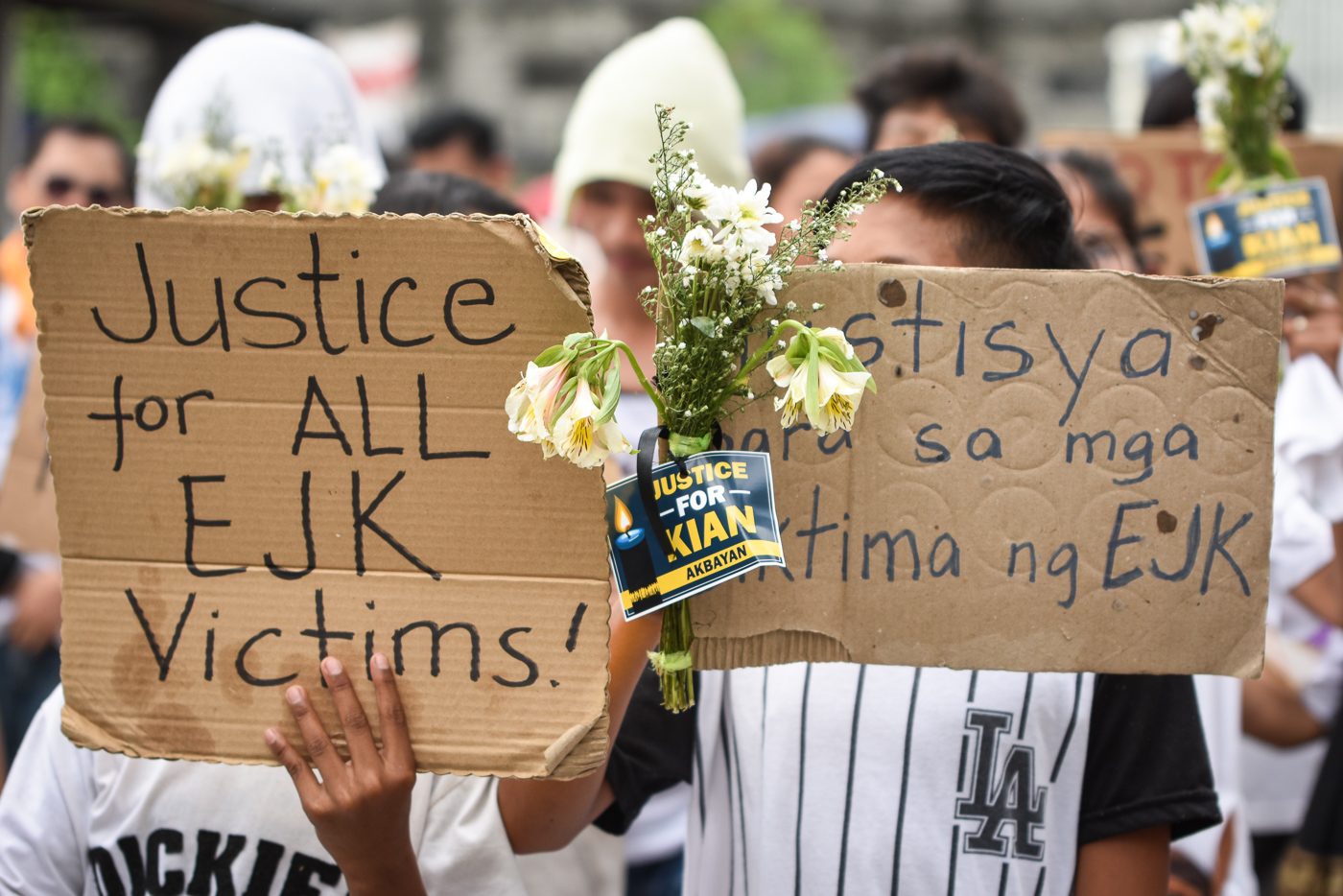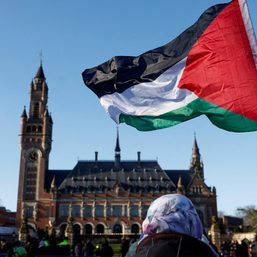SUMMARY
This is AI generated summarization, which may have errors. For context, always refer to the full article.

MANILA, Philippines – The United Nations Office of the High Commissioner for Human Rights (UN OHCHR) said the Philippine government must do more in its investigations into incidents of abuses, including the widespread killings that happened under then-president Rodrigo Duterte’s war on drugs.
In a report released on Tuesday night, September 13, the UN noted efforts still not taken by the government and pointed out several issues that contribute to a “very limited” access by victims to justice.
“Institutional and structural shortcomings in law enforcement and the judiciary remained, despite efforts to address some cases [and] these shortcomings included limited oversight of human rights investigations, inadequate investigation capacity and inter-agency cooperation, limited forensic capacity and protracted judicial processes,” the UN said in its report.
“Inadequate victim and witness support and protection and fear of reprisals also impacted victims’ engagement,” it added.
The release of the report came as part of an October 2020 resolution adopted by the UN Human Rights Council, which civil society organizations and stakeholders tagged as weak for only offering technical assistance to the Philippines, instead of an investigation into documented killings under the Duterte administration.
Government data show that 6,252 individuals were killed in police anti-drug operations between July 2016 and May 31, 2022. This number does not include those killed vigilante-style, which human rights groups estimate to be between 27,000 to 30,000.
Only one case has led to a conviction so far – three cops involved in the killing of 17-year-old Kian delos Santos in 2017. Meanwhile, the inter-agency drug war review panel has yet to make significant steps since its creation in June 2020. The UN report also noted the lack of convictions in the cases reviewed by the panel.
“Transparency and public scrutiny in investigative processes and outcomes remain a challenge,” the UN rights office said in its report.
The observation of the UN mirrors the constant criticism of many stakeholders, most especially families who continue to face challenges in their quest for justice for their loved ones. (READ: In Duterte’s drug war, justice is ‘nearly impossible’)
Even the Commission on Human Rights (CHR), mandated by the 1987 Philippine Constitution to investigate state abuses, are not immune to these challenges. In its report released in May, CHR said its probes were “hampered by the predilection and uncooperativeness” of government agencies involved in the war on drugs.
The UN OHCHR called on the government to conduct “prompt, impartial, thorough, transparent investigations” into all reported killings and abuses, as well as pushed the inter-agency panel to “accelerate” its work, among other recommendations.
It also urged the UN Human Rights Council to keep an eye on the progress and outcome of both domestic and international accountability mechanisms “to consider further approaches that may be required.”
Why this matters
The report comes as the Philippine government recently asked the International Criminal Court (ICC) pre-trial chamber to deny the request of ICC prosecutor Karim Khan to resume the probe into the drug war and the killings in Davao City.
Khan, in June, sought to resume his probe after determining that there were no genuine investigations into the drug war killings, and that the much-touted drug war review panel by the Department of Justice was a mere “desk review…[that] by itself does not constitute investigative activity.”
The UN HRC is also set to assess the human rights record of the Philippines under the previous Duterte administration through a Universal Periodic Review scheduled in November 2022.
Human rights organizations have been constantly calling on the UN HRC to look beyond the smokescreen and address the situation in the Philippines concretely and strongly, especially after the dismal October 2020 resolution.
It is expected that they will also call on member-states to consider the UN report in its upcoming deliberations.
“UN member states should not be fooled by the baseless claims from the new Philippine government that the rights situation has suddenly improved,” Human Rights Watch (HRW) Geneva director Lucy McKernan said in a statement on September 12.
“Continued UN scrutiny of the Philippines is vitally important because ‘drug war’ killings are still common and police impunity for rights violations remains the norm,” she added. – Rappler.com
Add a comment
How does this make you feel?




![[WATCH] Bamban POGO scandal: There’s a bigger fish than Alice Guo](https://www.rappler.com/tachyon/2024/07/inside-track-tcard-bamban-pogo.jpg?resize=257%2C257&crop=435px%2C0px%2C1080px%2C1080px)
![[Vantage Point] China’s silent invasion of the Philippines](https://www.rappler.com/tachyon/2024/07/TL-china-silent-invasion-july-16-2024.jpg?resize=257%2C257&crop=318px%2C0px%2C720px%2C720px)

![[The Slingshot] Lito Patay’s 4 hours and 38 minutes of infamy](https://www.rappler.com/tachyon/2024/07/Lito-Patay-4-hours-infamy-July-19-2024.jpg?resize=257%2C257&crop=233px%2C0px%2C720px%2C720px)

![[The Slingshot] A Duterte and Bato cop named Patay](https://www.rappler.com/tachyon/2024/06/tl-lito-patay.jpg?resize=257%2C257&crop=322px%2C0px%2C720px%2C720px)











There are no comments yet. Add your comment to start the conversation.